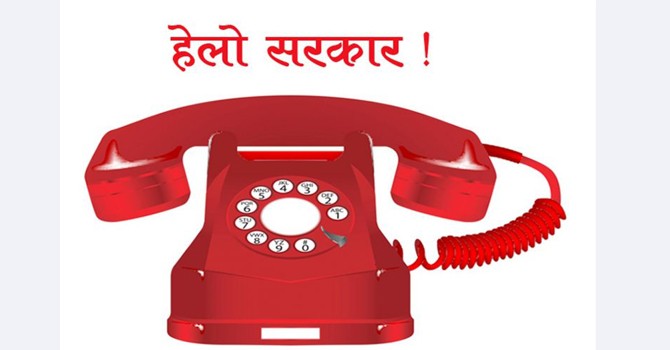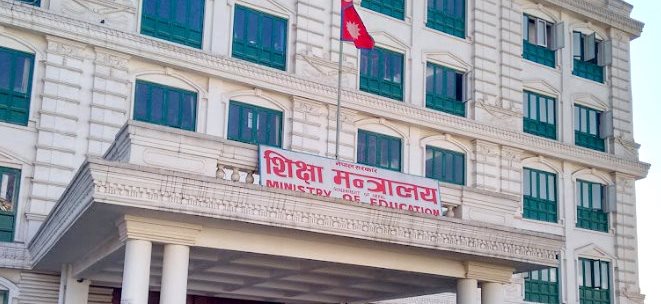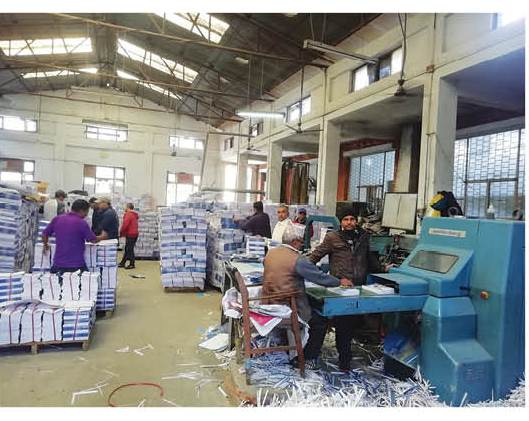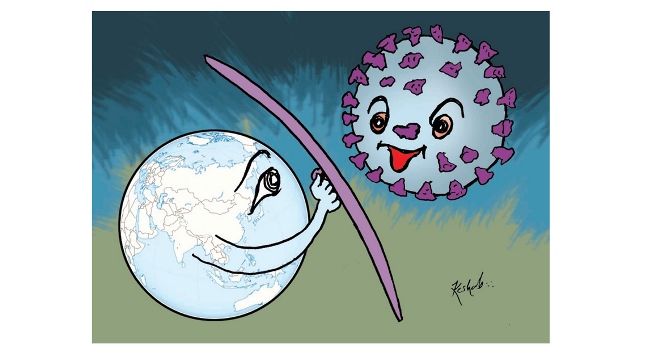Ambitious literacy campaign not realised even in 12 years

By Manjima Dhakal
Kathmandu, Sept. 9: In the fiscal year 2008-2009, an ambitious National Literacy Campaign was launched with a target to eliminate illiteracy from Nepal in two years. However, due to the lackluster performance of the government over the years, the target has not been achieved even 12 years after it was launched.
The government authorities while marking the World Literacy Day on Tuesday once again reiterated their commitment to eliminating illiteracy from the country within this year.
However, considering the poor implementation status of the programme, achieving the goal in a year looks impossible.
The government then had started the campaign to eradicate illiteracy among the age groups of 15-60 years across the country in two years. By now, only 53 districts have declared themselves fully literate districts. Including Kathmandu, 24 districts are yet to become fully literate. Likewise, all eight districts of State 2 have not declared themselves fully literate. Though the government in its budget announcement said it would declare literate Nepal within this year, the authorities have COVID-19 as a good excuse once again.
Now, the country has around 100,000 illiterates. But, the number may be more because many newly literate may have become illiterate again, Gehanath Gautam, director of Centre for Education and Human Resource Development said. In the household survey of 2010, the nation had 7,800,000 illiterates across the country. “The government has invested around Rs. 8 billion in literacy campaign by fiscal year 18/19. This year, the government has allocated Rs. 200,000 to Rs. 700,000 for each local level for literacy campaign. A total of 221 local levels of 24 districts will run the literacy campaign this year,” Gautam informed.
Gautam said it seemed difficult to meet the target even this year because the government was facing problem to run the programme due to the COVID-19 pandemic. However, some local governments, including in Kathmandu, have been initiating to run programme even amid this pandemic, Gautam said.
The CEHRD estimated that now 82 per cent adults of the age group 15-60 years are literate. But the real figure of the literacy will come out in the national population census of 2021.
The programme could not attain success even in so many years as the local bodies were not mobilised for the programme, Gautam said.
Dr. Biddhya Nath Koirala, an educationist, said the literacy programme could not be successful because the programme set by the centre was imposed on local levels. As a result, local bodies are not taking the ownership of the programme, he added.
Koirala further said new literate may be illiterate again if they do not continue the learning process regularly.
Recent News

Do not make expressions casting dout on election: EC
14 Apr, 2022
CM Bhatta says may New Year 2079 BS inspire positive thinking
14 Apr, 2022
Three new cases, 44 recoveries in 24 hours
14 Apr, 2022
689 climbers of 84 teams so far acquire permits for climbing various peaks this spring season
14 Apr, 2022
How the rising cost of living crisis is impacting Nepal
14 Apr, 2022
US military confirms an interstellar meteor collided with Earth
14 Apr, 2022
Valneva Covid vaccine approved for use in UK
14 Apr, 2022
Chair Prachanda highlights need of unity among Maoist, Communist forces
14 Apr, 2022
Ranbir Kapoor and Alia Bhatt: Bollywood toasts star couple on wedding
14 Apr, 2022
President Bhandari confers decorations (Photo Feature)
14 Apr, 2022









